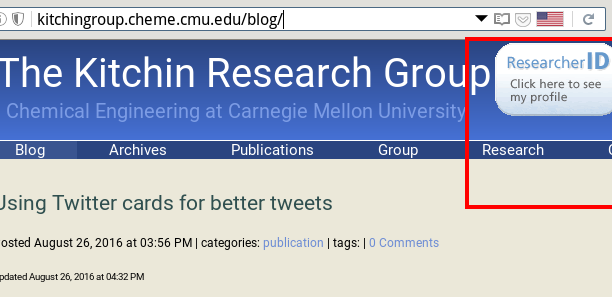I have a question about my choice of name for publication. I recently got married and legally changed my name to my husband's surname (for example's sake: from Hunter to Jones). So, despite legally being Ms Jones now, I would quite like to use the hyphenated name Hunter-Jones in the professional context and in publications. This is so that people realise that it is still me and so that I can somewhat keep my maiden name. Is this possible or do I have to use my legal name professionally and when publishing? Thank you for any help
-
2See related academia.stackexchange.com/questions/9003/…– gmanCommented Oct 18, 2016 at 16:53
-
23Anecdotally, I know several people who use a wrong name (more precisely, a variation of their name, which they never legally carried) on their publications. The reason being that most publishers and libraries are absolutely terrible with (non-English) names.– Konrad RudolphCommented Oct 18, 2016 at 22:33
-
8I can't vouch for all fields, but in mathematics it is absolutely allowed, and not seen as unusual.– Yemon ChoiCommented Oct 19, 2016 at 3:31
-
3The idea @KonradRudolph describes isn't uncommon. I know of an example where the author publishes using their middle name as a surname. Unlike their true surname it's all-ASCII and easily (if badly) pronounced by speakers of most lamnguages written in the LAtin alphabet. It also happens to be a sensible surname in both English and their native language.– Chris HCommented Oct 19, 2016 at 7:28
-
3@Keeta - USA is weird once again.– DavorCommented Oct 20, 2016 at 11:00
5 Answers
Yes. You get to decide what name appears on your publications.
-
4The same ia true for the inverse. Renowned political scientist Beate Kohler-Koch continued to write under this 'pen-name' after her divorce. Commented Oct 19, 2016 at 6:05
-
35This is the correct answer. One small comment -- be very careful on being consistent on tracking which name you use. I know people who have had (for example) plane tickets in their "professional" name, when their passport has their "official" name, and they were not allowed to fly. Similarly for checking into hotels. Commented Oct 19, 2016 at 11:04
-
4This is very common for married female academics. Many use different names professionally and socially. Commented Oct 19, 2016 at 15:43
In the same tune as @Ric: The best is to keep one name for all of your publications. If you introduced a middle name (like Jane Abigail Doe), keep the pattern, too; and not change once to Jane A. Doe and an other time to J. Abigail Doe, for example.
In addition, consider a free registration at Thomson Reuters's Web of Science as ResearcherID (here) or -- better and -- ORCID. By this you may increase the visibility of your research activities, not only should your name be a more frequently one (Smith, Li, etc.); but should you change to an other research institution. See, for example, the ResearchID bag by John Kitchin below: This allows everyone to see the bibliographic references he contributed: this compilation is accessible, regardless if one has subscriber access to Web of Science, or not. Obviously, ORCID has a database that lives from your contributions.
Disclaimer: I am not affiliated with Thomson Reuters, nor ORCID. And while not affiliated with Kitchin's group either, it is simply historically the first page of a PI I saw with this badge, while researching for his contributions to Emacs' org-mode.
I know a number of people who, although they legally changed their name upon marriage, continue to publish under their maiden name. I consider that a valid choice.
You can use any name you like, but consider your goal. Many professionals continue to use their maiden name, if it is established. Consider it your 'business name'.
Legally and morally there is no issue. Whether changing your name is wise depends on your subject and the databases used in that subject. For example, in mathematics publishing under different names would be no problem, as MathReviews has a database of authors both identifying name changes and different spellings and differentiating between different authors with the same name. In other subject areas changing your name means that users of a database will not find all your publications. This will even be true for the change from Hunter to Hunter-Jones, as many computers will not see any relation between the two. So think about the databases used most often in your area, and search for people who changed their name.

